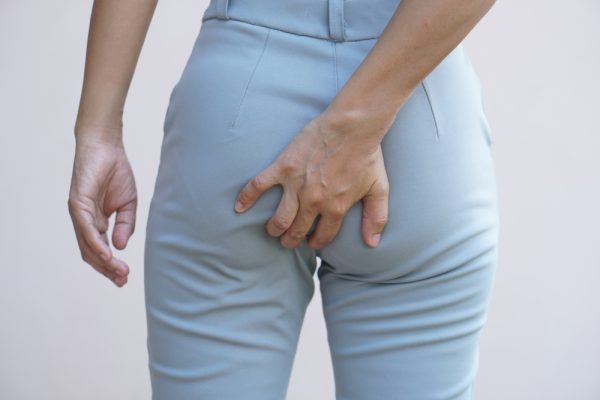
Here are seven of the most common causes of anal fissures, backed by clinical insight and patient care experience.
1. Constipation and Hard Stools
When stool becomes dry and difficult to pass, it can stretch and tear the delicate anal tissue. Constipation is one of the most frequent causes of anal fissures, especially when straining is involved.
Prevention tip: Stay hydrated, eat a high-fiber diet, and consider stool softeners if recommended by your provider.
2. Chronic Diarrhea
While constipation gets more attention, frequent loose stools can also lead to fissures. Diarrhea increases irritation in the anal area and can weaken skin integrity over time.
Prevention tip: Identify and manage the underlying cause of chronic diarrhea (e.g., food sensitivities, infections, or IBS).
3. Straining During Bowel Movements
Excessive straining, often due to constipation, poor bowel habits, or pelvic floor dysfunction, puts pressure on the anal sphincter and can cause tears.
Prevention tip: Use proper toilet posture (such as a footstool), and avoid prolonged time on the toilet.
4. Childbirth
Vaginal delivery, especially with tearing or episiotomy, can lead to pressure and trauma in the anal region, resulting in postpartum fissures.
Prevention tip: Postnatal care, including pelvic floor therapy and stool management, can help reduce the risk.
5. Anal Intercourse or Injury
Direct trauma to the anal canal, whether from sexual activity or foreign object insertion, can cause small tears in the lining.
Prevention tip: Use proper lubrication and avoid activity during times of irritation or inflammation.
6. Inflammatory Bowel Disease (IBD)
Conditions like Crohn’s disease and ulcerative colitis can lead to chronic inflammation, poor healing, and recurrent fissures.
Prevention tip: Keep IBD well-controlled with the help of your GI specialist and avoid irritating foods during flare-ups.
7. Overly Tight Anal Sphincter Muscles
In some individuals, the internal anal sphincter remains overly contracted, which reduces blood flow and impairs healing, leading to chronic fissures.
Prevention tip: Medical therapies like topical nitroglycerin or botulinum toxin (Botox®) may help relax the muscle and promote healing.
Get Expert Help for Anal Fissures
If you’re dealing with anal pain, bleeding, or recurrent fissures, a correct diagnosis and expert care are essential. At Piedmont Colorectal Associates, our knowledgable team of doctors offers both conservative and surgical treatments to help restore comfort and prevent future problems. Contact us today in Atlanta at (404) 351-7900 or request a consultation online to get started.

